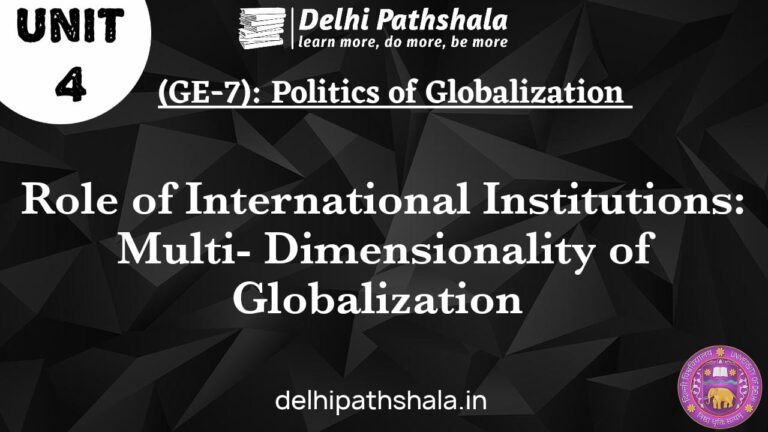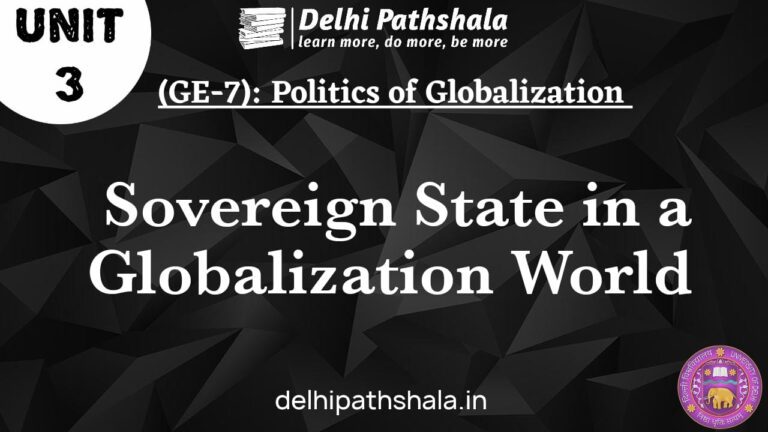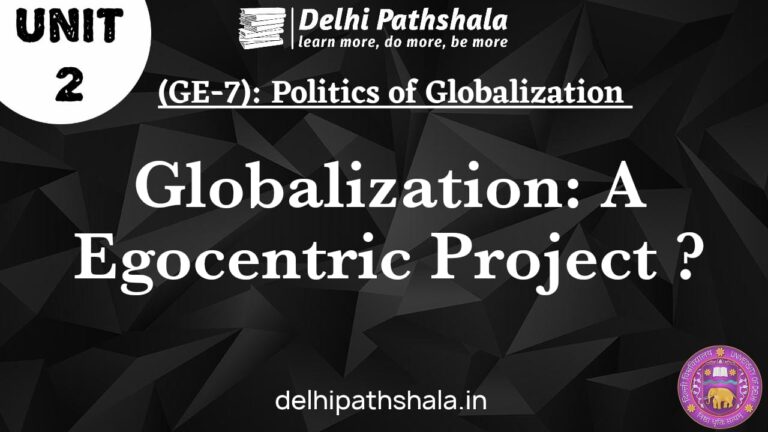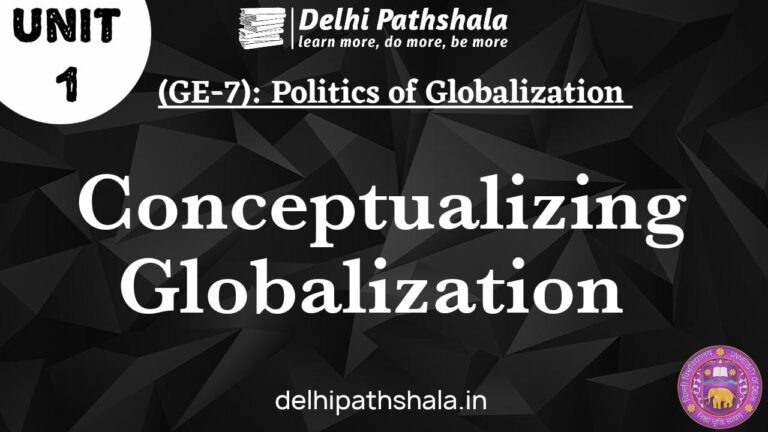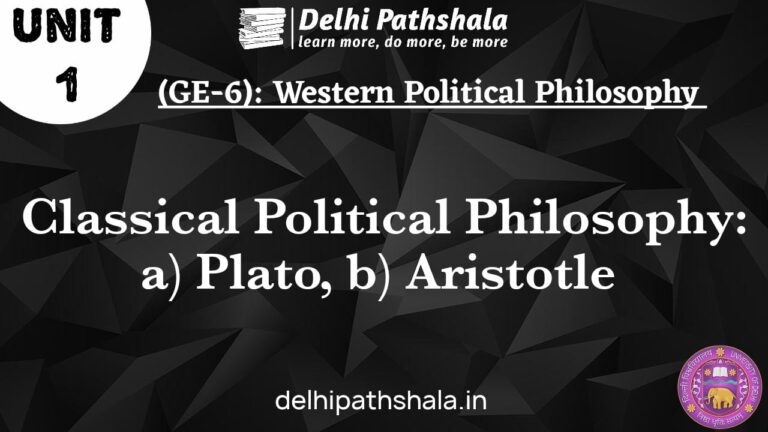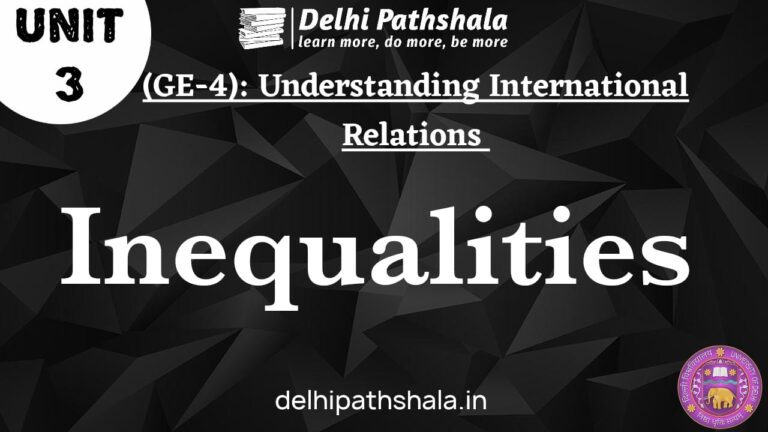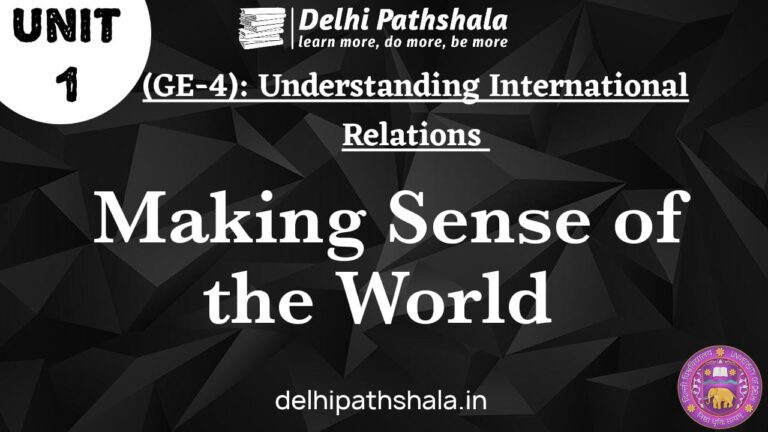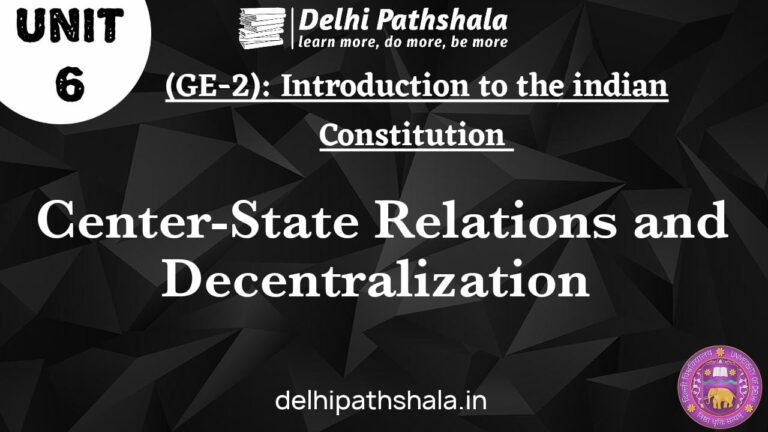(GE-7) Unit-4: Role of International Institutions: Multi-dimensionality of Globalisation
The World Bank is an international financial institution that provides financial and technical assistance to developing countries for development projects and programs. It was established with the goal of reducing poverty and supporting economic development.

